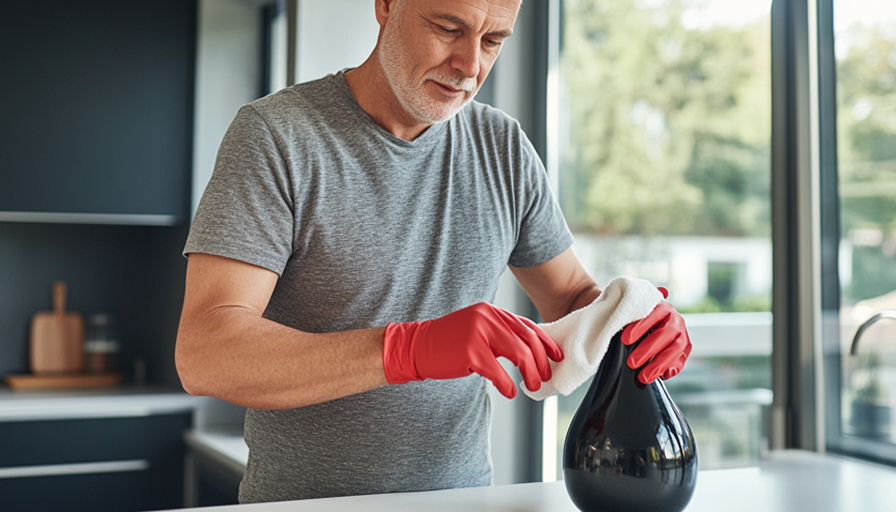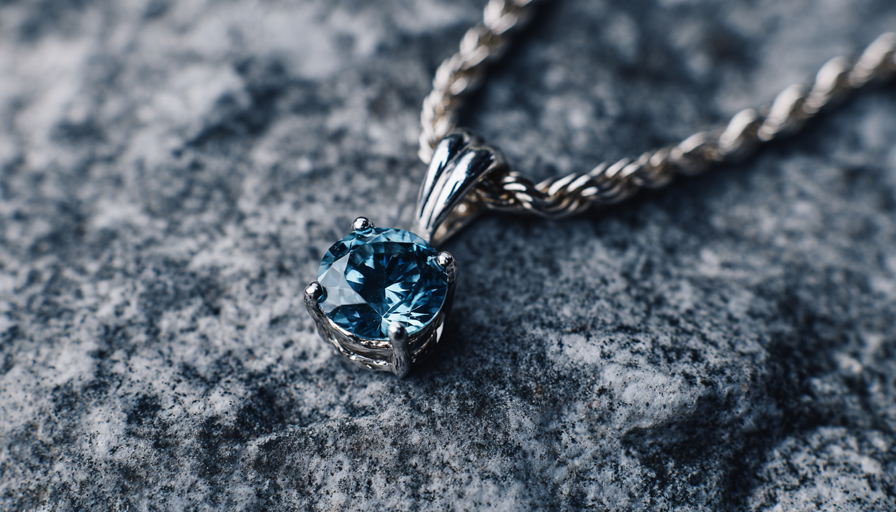How Do I Properly Maintain and Clean an Urn?
Cremation urns hold not only the ashes of a loved one, but also immense sentimental value. Whether placed in your home, a niche, or a memorial space, it's important to ensure they are well cared for. Proper cleaning and maintenance help preserve their beauty and integrity for years to come. However, the right method depends largely on the material the urn is made from. Each material—whether it be bronze, brass, ceramic, glass, fiberglass, stone, steel, stainless steel, or wood—requires a tailored approach. Below is a comprehensive guide to help you maintain your urn correctly.
Cleaning and Maintaining Bronze Urns
Bronze urns offer a deep, warm finish and classic look. Bronze is both frost-resistant and weather-resistant, making it suitable for both indoor and outdoor placement. However, bronze will oxidize over time, developing a green patina—commonly seen on antique bronze statues in cities. This natural process is not harmful, and some people even appreciate the aged, verdigris appearance it creates.
If you prefer to preserve the original brown-gold patina, it is advisable to maintain the surface by applying a transparent wax such as beeswax a few times a year. These treatment help to shield the surface and slow down oxidation.
Follow these steps:
Steps for cleaning bronze urns:
- Dust regularly: Use a soft, dry cloth or microfiber duster to prevent buildup.
- Use mild soap and water: Mix gentle soap with warm water. Dampen a cloth and wipe gently.
- Dry thoroughly: Always use a soft, dry cloth after cleaning to remove moisture.
- Polish selectively: Use a non-abrasive bronze polish sparingly and test on a hidden spot first.
- Beeswax application: Apply a thin layer of natural beeswax using a soft cloth to enhance the protective layer and bring out the bronze's warm luster. Buff gently after application.
- Avoid harsh chemicals: Acids and ammonia can damage the surface.
- Limit humidity: Store in a dry, temperature-controlled space to reduce tarnishing.
Avoid using polish if the bronze urn has a protective lacquer, as this can damage the seal.
Cleaning and Maintaining Brass Urns
Brass urns provide a rich, golden appearance that can become dull if not properly maintained. While some prefer the antique look of aged brass, others may wish to maintain its luster.
Steps for cleaning brass urns:
- Use a microfiber cloth: Gently remove dust weekly.
- Clean with soapy water: Mix mild dish soap with warm water. Use a soft cloth to wipe the surface.
- Rinse and dry immediately: Water can leave marks if not dried promptly.
- Polish gently: Use a dedicated brass polish, but avoid overuse. Always test in an inconspicuous area.
- Do not use abrasive pads: These can scratch the brass and remove protective finishes.
As with bronze, avoid polishing if the brass urn has a lacquer coating.
Cleaning and Maintaining Ceramic Urns
Ceramic urns are often handcrafted and decorated with glazes or painted finishes, making them both delicate and artistic.
Steps for cleaning ceramic urns:
- Handle with care: Always use two hands to move a ceramic urn.
- Use a soft cloth: Dust with a dry or slightly damp microfiber cloth. Avoid soaking the surface.
- No harsh chemicals: Never use abrasive or ammonia-based cleaners that can damage the glaze.
- Avoid extreme temperatures: Keep ceramic urns in stable environments, away from heat or freezing conditions.
For painted urns, avoid any moisture altogether and opt for dry dusting only.
Cleaning and Maintaining Glass Urns
Glass urns are known for their clarity, brilliance, and modern elegance. Because they are fragile, cleaning must be done with caution.
Steps for cleaning glass urns:
- Use a lint-free cloth: Microfiber cloths are ideal.
- Mild soapy water: Mix gentle soap with warm water, then lightly dampen the cloth.
- Dry immediately: Water spots can dull the surface, so always dry right after cleaning.
- Avoid abrasives and scouring pads: These can scratch the surface.
- Polish with glass cleaner: Only if necessary, and use one specifically for delicate glass surfaces.
Do not submerge glass urns in water, especially if they are sealed or contain ashes.
Cleaning and Maintaining Fiberglass Urns
Fiberglass urns are lightweight, highly durable, and resistant to corrosion. Still, proper care ensures their finish remains intact.
Steps for cleaning fiberglass urns:
- Dust regularly: Use a soft cloth or feather duster.
- Clean with mild soap: Use a soft sponge or cloth with soapy water, then wipe gently.
- Rinse and dry: Use a clean damp cloth to remove soap residue and immediately dry with a towel.
- Avoid solvent-based cleaners: These can break down the finish.
Keep fiberglass urns out of direct sunlight to avoid color fading over time.
Cleaning and Maintaining Stone Urns
Stone urns, including marble, granite, or other natural stones, are cherished for their solid, timeless quality. However, they are porous and require special attention.
Steps for cleaning stone urns:
- Use a pH-neutral cleaner: Avoid vinegar or acidic products, which can etch the surface.
- Soft cloth or sponge only: Abrasive materials can scratch stone.
- Sealant maintenance: If the urn has a sealant, reapply it every few years as recommended.
- Avoid standing water: Moisture can seep into stone and cause discoloration.
Polished stone should be gently buffed to maintain its shine, while unpolished surfaces should be kept dry and dusted regularly.
Cleaning and Maintaining Steel Urns
Steel urns, often powder-coated or enamel-finished, offer a strong and sleek design. While durable, they can still suffer from corrosion if not handled properly.
Steps for cleaning steel urns:
- Dry dusting: Use a microfiber cloth to remove dust.
- Mild soap solution: If needed, use a damp cloth with diluted soap.
- Wipe dry: Prevent water from lingering on the surface to avoid rust.
- Avoid scratches: Do not use steel wool or abrasive pads.
Steel urns are best kept indoors in dry, temperature-stable environments.
Cleaning and Maintaining Stainless Steel Urns
Stainless steel urns are highly resistant to corrosion, making them ideal for both indoor and outdoor placement. However, they still require occasional care to preserve their appearance.
Steps for cleaning stainless steel urns:
- Use a soft cloth: Dry or slightly damp, preferably microfiber.
- Mild detergent: Mix a few drops with warm water and apply gently.
- Wipe in the direction of the grain: This helps avoid streaks.
- Rinse and dry thoroughly: Prevents water spots and maintains sheen.
- Polish occasionally: Use a stainless steel polish for added shine.
For a complete guide, visit our detailed care page: Maintenance of stainless steel urns
Cleaning and Maintaining Wooden Urns
Wooden urns bring warmth and natural beauty to any space. However, because wood is an organic material, it’s sensitive to environmental conditions.
Steps for cleaning wooden urns:
- Dust regularly: Use a soft, dry cloth.
- Avoid moisture: Water can warp or stain the wood.
- Polish occasionally: Use wood polish or wax to maintain its finish, but avoid oil-based products which can attract dust.
- Keep out of direct sunlight: Sunlight can cause discoloration and cracking.
- Maintain stable humidity levels: Extremely dry or humid environments can cause the wood to expand or contract.
If your wooden urn is hand-painted or inlaid, avoid any liquid cleaners and stick with gentle dry dusting only.
Final Tips for All Cremation Urns
For those who also own memorial jewelry, we recommend reading our dedicated guide on how to care for ashes jewelry here: Caring for Cremation Ashes Jewelry
Regardless of the urn material, the following general tips will help prolong its condition:
- Always handle with clean, dry hands.
- Do not attempt to open sealed urns.
- Store in a place free from excessive humidity and direct light.
- Avoid placing urns in areas where they can be knocked over easily.
If you're ever unsure, consult the manufacturer or seller of your urn for specific care instructions.
Honoring Your Loved One with Care
Maintaining and cleaning an urn is more than just a household chore—it’s a way of honoring the memory of someone cherished. By caring for their final resting vessel with the attention and respect it deserves, you preserve not only its beauty, but also its emotional significance. Whether you're looking after a sleek stainless steel urn or a delicate ceramic piece, this guide offers all you need to protect your tribute for generations to come.
















